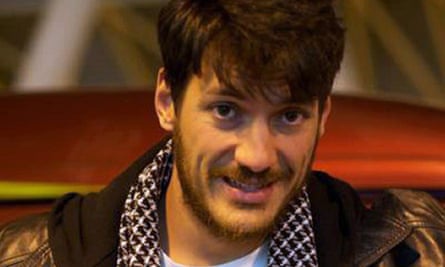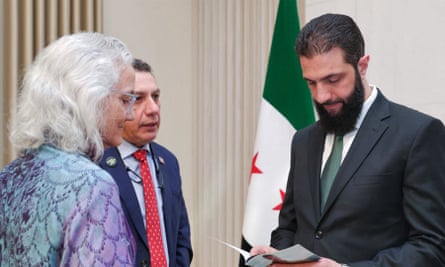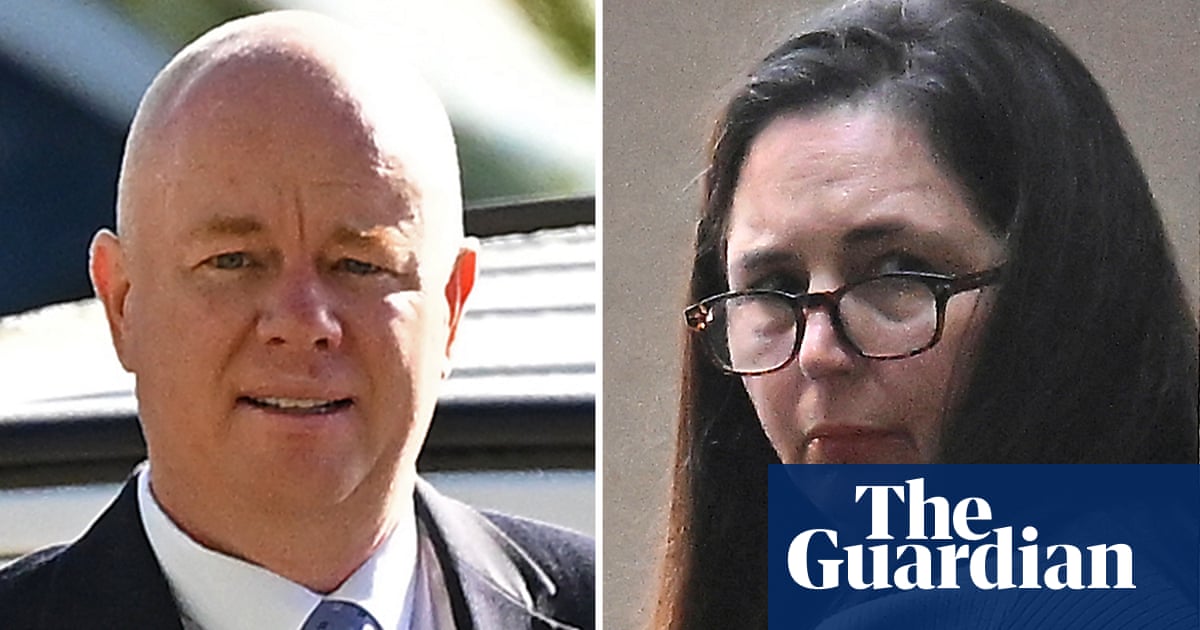Debra Tice had managed to gather her family in one place in early December – no easy feat given they were spread across the US and Australia. When they planned their reunion months before, the Tice family had no idea they would be together to watch the Assad regime fall after a lightning 11-day rebel offensive toppled the 53-year rule.
“It was amazing for us to be together like that – it doesn’t happen often – to watch that together,” Debra said from a hotel room in Damascus. Only one member of her family was missing from the reunion, her son Austin Tice, a journalist who was kidnapped at the age of 31 in a suburb outside Damascus in 2012, while reporting on the Syrian civil war.
On Saturday, Debra returned to Damascus after nearly 10 years. Though initially cooperative, the Assad regime stopped issuing her visas in 2015 as she searched for her son, who was believed to have been held by the government itself. Austin would now be 43 years old, after 12 years of captivity.
The last footage of Tice was posted in 2012, showing the reporter blindfolded, led by men who forced him to recite Islamic prayer before he said, in apparent distress, “Oh Jesus, oh Jesus. God.”
There are doubts about whether the video was staged to make it look as if Tice was kidnapped by Islamist rebels, rather than the government. Experts said the men in the video were wearing clothes native to Afghanistan, rather than Syria.

With the Assad regime gone, the search for Tice can resume. Nizar Zakka, the head of Hostage Aid Worldwide (HAW) and a former hostage in Iran, entered Syria a few days after the fall of the regime and began to search for the journalist.
“You should see the way we enter these security branches, we invade them,” Zakka said. He brought with him a team of 12 cargo pants clad staff members, whom he directs with military-like orders.
Together, they have spent the last six weeks combing through former branches of state security, military intelligence and even the home of the former head of the Syrian air force intelligence unit, Jamil Hassan. Wherever they think a VIP hostage like Tice might have been held, they are looking for documents, hard drives, anything with his name on it.

“As a former hostage myself, I know where to look, where people might write information on the prison walls, where they keep the high-value hostages,” Zakka said.
So far, the team has not found any documents that pertain to Austin Tice. Their running theory is that the reporter is being held in a Syrian safe house by a high-level regime figure who wants to use Tice as a bargaining chip for their own safe passage outside Syria. Zakka said they had a few leads on where these safe houses may be, but have “nothing concrete”.
For months, the HAW had run ads on TV and radio inside Syria, urging people to contact them if they had any information on Tice’s whereabouts. Since his detention, no party has produced a proof of life.
HAW say they believe Tice is alive and well based off various reports they received, including what they say are documents from medical treatments he received during his 12 years of captivity. Former US president Joseph Biden also said he believed Tice was alive.
With new leadership in Washington and Damascus, the Tice family believe that there is renewed hope to find their son.
“Today is going to be a new day for us, things are going to change … it’s like starting over again, it’s a new beginning after 8 December,” Debra Tice said at a press conference on Monday in Damascus.

She added that Trump administration officials had already contacted her regarding Austin, and she had met the de facto leader of Syria, Ahmed al-Sharaa, to discuss his case the day before.
The Tice family is facing the same challenges that Syrian families of the more than 100,000 forcibly disappeared who did not emerge from Assad’s detention centres have encountered since the fall of the regime.
Prison facilities which hold crucial documentation are not being safeguarded. Looting, busted water pipes and neglect have led to thousands of missing documents.
The Assad regime’s security apparatuses took meticulous notes and its various branches are stuffed with documents. Human rights organisations fear that if not safeguarded, key information that could help people find their loved ones could be lost.
“The priority right now is to close all the security centres and not allow anyone in. We need everyone who took documents to return them,” said Bayan Rehan, a member of the Families for Freedom association whose brother was arrested by the Assad regime.
Sharaa has yet to meet with a representative from Syrian associations like Families for Freedom and they do not have the same resources that the Tice family has been able to mobilise.
The UN created an Independent Institution on Missing Persons in the Syrian Arab Republic in the summer of 2023, but the commission has yet to deploy a team on the ground due to lack of funds.
“We’re used to the UN not helping us,” Rehan said with a shrug.
Debra Tice left Damascus on Tuesday, but work to find her son, and other people forcibly disappeared by the Assad regime, continues.
“Austin, if you can somehow hear this, I love you. I know you’re not giving up and neither am I,” she said.

 3 months ago
50
3 months ago
50













































